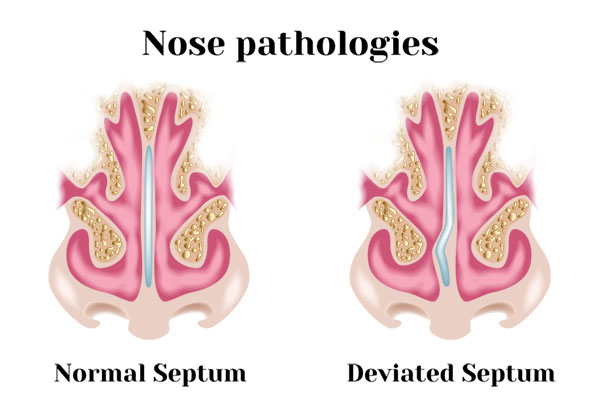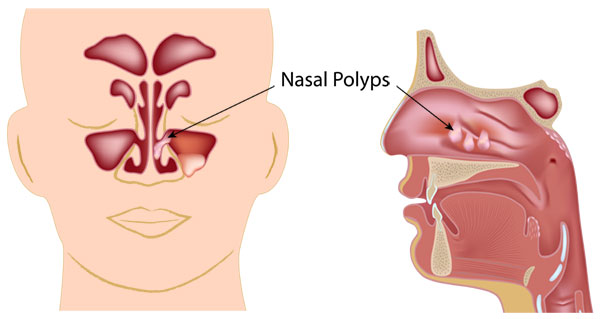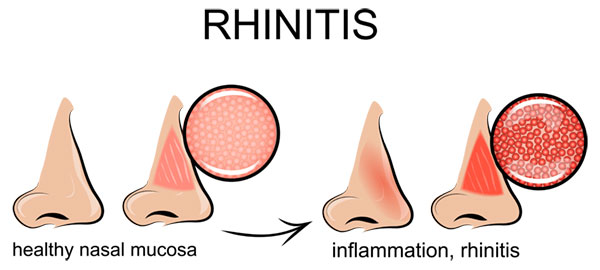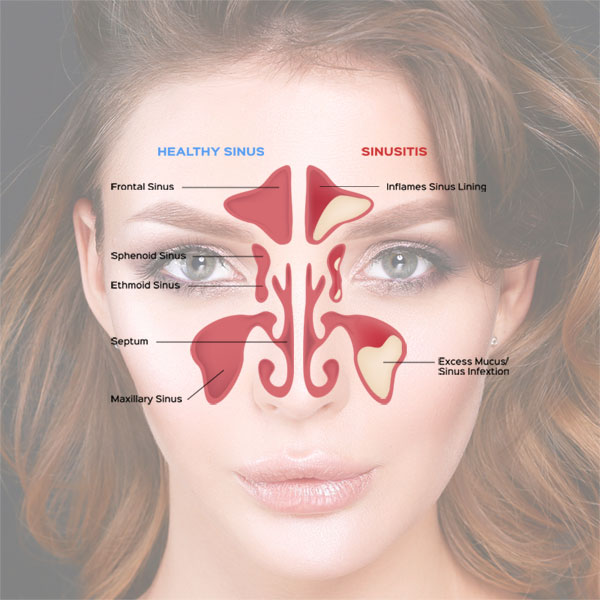Balloon Sinuplasty
Balloon Sinuplasty™ technology is an FDA-cleared, endoscopic, catheter-based system for patients suffering from sinusitis. The technology uses a small, flexible, Sinus Balloon Catheter to open up blocked sinus passageways, restoring normal sinus drainage and function.
Allergy Symptoms and Causes
Allergy symptoms range from mild annoyances, to severe and life-threatening reactions. Allergy sufferers may even experience symptoms, such as frequent colds, sinus infections, and skin rashes, without realizing that the symptoms are caused by allergies. In addition to the annoyance and discomfort associated with allergy symptoms, many sufferers find that they are forced to avoid situations where their allergies may be triggered. Picture missing your son’s first base hit. Or imagine your child being unable to go fishing with grandparents. Many suffers must withdraw from former hobbies, or avoid friends and family, with the onset of allergies.
Treating Allergies
Fortunately, treatment methods are available which can alleviate allergies, or put them in long-term remission. Allergy management options continue to improve and the allergy doctors at Eastern Virginia ENT study the latest in techniques and therapies. Traditional treatments include avoidance or reduced exposure, medications and Immunotherapy. If allergies affect you, or someone you love, speak with your healthcare provider today, to learn more about the various treatment methods.
Conditions We Evaluate
- Acute or Chronic Sinus Disease / Sinusitis
- Epistaxis (Nose Bleeds)
- Nasal Congestion / Nasal Obstruction/ Deviated Septum
- Nasal Polyps
- Nasal Tumors
- Sinus headaches
- Broken nose
- Foreign Bodies in Nose
Treatment & Procedures
- Balloon Sinuplasty™
- Endoscopic Sinus Surgery
- Septoplasty
- Turbinectomy (Turbinate Reduction)
Deviated Septum
The thin wall inside your nose that separates your right and left nasal cavities, is called your nasal septum. Ideally, your septum is situated in the center of your nose, equally separating the two halves of your nasal cavity.
In the majority of people, the nasal septum is displaced to one side, making one nasal passage smaller than the other. This is what is known as a deviated septum.
Nasal Polyps
Nasal polyps are small, sack-like growths made up of inflamed tissue lining the nose. They often occur in groups, like grapes on a stem. Small nasal polyps may cause few problems, but larger ones can affect your breathing, lead to sinus infections and diminish your sense of smell.
Nasal polyps typically develop in the mucous lining of the nose, but they can also develop in one or more of your sinuses. Treatment for nasal polyps depends on many factors, so make sure you discuss all of your options with your doctor.
Rhinitis
Rhinitis, also known as Coryza, is an inflammation of the nasal passages, often associated with watery nasal discharge, nasal itching, and problems breathing through the nose.
Causes of Rhinitis and Nasal Congestion
Potential causes include allergies, bacterial infections, and non-allergic vasomotor irritants such as medications or hormones or physical environment. Symptoms include sore throat, cough, congestion headache and rhinorrhea or runny nose.
Treatment Options for Rhinitis
If you think you may suffer from rhinitis, you should speak with your doctor, and discuss steps to reduce the symptoms of this condition. Treatments will depend on the cause and severity of your rhinitis and can be determined with your physician.
Sinusitis
Causes of Sinusitis
The sinuses are air-filled cavities that surround the nose and nasal passages. If these passages become inflamed, fluid can build up, and interfere with the drainage of mucus in the sinuses. This condition is called sinusitis. The sinus inflammation can be caused by infections from a virus, bacteria or fungus. A deviated nasal septum or other blockages can cause sinus infections and may be develop either acute or chronic sinusitis.
Sinusitis Treatment Options
Acute Sinusitis
Symptoms lasting more than 10 days are usually associated with Acute Sinusitis
Chronic Sinusitis
Symptoms lasting more than 12 weeks or recurring multiple times within a year are considered Chronic Sinusitis. Your Eastern Virginia ENT & Allergy doctor may use x-rays, CT Scan, and other tests to determine if you have Sinusitis. Treatment of sinusitis depends on the cause, and may include medications, self-care and prescriptions. Other treatment options for recurring or chronic sinus complications may be needed. If left untreated, sinusitis can lead to more serious infections or complications due to the proximity to the brain and other areas of the head.
Patient Education & Resources
Allergic Rhinitis, Sinusitis & Rhinosinusitis: http://www.entnet.org/?q=node/1372
Epistaxis (Nosebleeds): http://www.entnet.org/?q=node/1416




